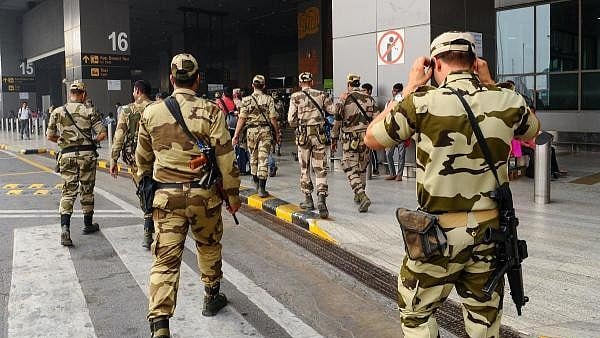
Representative image of CISF jawans at an airport.
Credit: PTI File Photo
New Delhi: In a move to strengthen security across major and minor Indian seaports, the Centre has designated the Central Industrial Security Force (CISF) as the new safety regulator for the about 250 maritime facilities, officials said on Friday.
The designation of the central paramilitary force under the Union Home Ministry has been done by the Ministry of Ports, Shipping and Waterways through an order issued on November 18, CISF Deputy Inspector General (DIG) Ajay Dahiya said.
This is a significant reform and a path-breaking step to enhance security across India's seaports. As ports play a vital role in trade, logistics and India's growing Blue Economy, the government is introducing a series of measures to modernise and standardise port security nationwide, he said.
The CISF has been designated as a Recognised Security Organisation (RSO) for seaports. An RSO acts as a regulator for seaport security.
Till now, there was no professional security organisation for seaports, and the subject was being dealt with under the DG Shipping organisation, a CISF official said.
The CISF will now lead key functions at the seaports, such as conducting updated security assessments, preparing security plans, and undertaking core security duties.
A hybrid security model, improved screening systems and dedicated training institutions for port-security personnel are also being introduced, officials said.
These steps represent a major stride toward creating secure, efficient and future-ready ports that support India's economic growth and global maritime ambitions, the DIG remarked.
India has about 250 small and intermediate seaports, but only about 65-68 are "actively" engaged in cargo operations.
The CISF provided security to all 13 major seaports, and private security agencies play a "key role" in securing cargo zones, warehouses, access gates and installations at smaller facilities.
The CISF, raised in 1969, is primarily tasked to guard critical infrastructure in the government and private domains, including more than 70 civil airports and nuclear and space facilities.